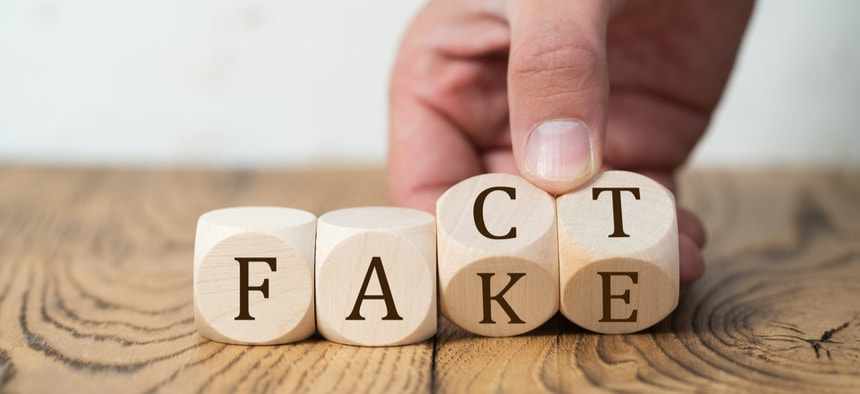"Being at home with so much time to ourselves, many people have taken the search for information into their own hands. And where better to do this than the limitless, time-sucking, attention-grabbing void that is the internet?" --Joaquin Montes de OCa, 7th Grade
As of today, May 16th, with about 4,500,000 cases worldwide, a day hasn’t gone by in the last two or so months that we haven’t been thinking and stressing about this situation. Being at home with so much time to ourselves, many people have taken the search for information into their own hands. And where better to do this than the limitless, time-sucking, attention-grabbing void that is the internet? Well the truth is, while the internet is pretty much the only source we have access to right now, it isn’t always the most reliable one. In the month of March alone, Facebook claimed to have placed more than 40 million warnings on posts that displayed false information related to COVID-19. But Facebook has coordinated with round 60 fact checking organizations to get this to happen. How does the common consumer identify misinformation? Or at least figure out a few clues that the information you have might not be correct.
Who/Where?
One thing you can look out for when trying to avoid misinformation is who and where you got this information from. Sometimes it’s easy to spot something untrue, like when your three doors down neighbor, Bonnie, who walks her cats on leashes leaves a homemade recipe for a coronavirus vaccine on your doorstep. But other times, like when national leaders go on television and spread misinformation, it can become difficult to know who to trust. Avoid sources that sensationalize information. These types of sources often have false or biased information.
This Global Citizen website offers eight of the most reliable sources for COVID-19 information and has a coronavirus preparedness quiz.
When?
Oftentimes, information isn’t false per se, just outdated. In a time when information can change drastically from day to day, always check the publishing date of the website you’re on or compare it to a website updated within the past ten hours.
What?
You can often identify and avoid misinformation at a glance, simply by what it is. For example, the idea that injecting or ingesting cleaning chemicals into one’s body can easily be dismissed as fake. Who was it that said that? It almost seems ridiculous that anybody would say something like that. They were probably some blogger, not anyone with an important job or role in the protection of our country or anything. That would be insane!
Always remember to be a critical consumer when getting information from websites, blogs or friends. Things are chaotic enough without a flurry of misinformation that leads to confusion and can potentially be harmful to people who believe it. And maybe--just maybe--take a step back. Turn off the computer. Stop scrolling, clicking, retweeting. Being informed is important but the internet can often make us more stressed out than we need to be and taking some time to do something offline can be productive in a time like this. Try to keep others safe by staying safe yourself and remember that things will get better.
Make sure to check out all the other COVID-19 articles here on the OSA Telegraph.
Who/Where?
One thing you can look out for when trying to avoid misinformation is who and where you got this information from. Sometimes it’s easy to spot something untrue, like when your three doors down neighbor, Bonnie, who walks her cats on leashes leaves a homemade recipe for a coronavirus vaccine on your doorstep. But other times, like when national leaders go on television and spread misinformation, it can become difficult to know who to trust. Avoid sources that sensationalize information. These types of sources often have false or biased information.
This Global Citizen website offers eight of the most reliable sources for COVID-19 information and has a coronavirus preparedness quiz.
When?
Oftentimes, information isn’t false per se, just outdated. In a time when information can change drastically from day to day, always check the publishing date of the website you’re on or compare it to a website updated within the past ten hours.
What?
You can often identify and avoid misinformation at a glance, simply by what it is. For example, the idea that injecting or ingesting cleaning chemicals into one’s body can easily be dismissed as fake. Who was it that said that? It almost seems ridiculous that anybody would say something like that. They were probably some blogger, not anyone with an important job or role in the protection of our country or anything. That would be insane!
Always remember to be a critical consumer when getting information from websites, blogs or friends. Things are chaotic enough without a flurry of misinformation that leads to confusion and can potentially be harmful to people who believe it. And maybe--just maybe--take a step back. Turn off the computer. Stop scrolling, clicking, retweeting. Being informed is important but the internet can often make us more stressed out than we need to be and taking some time to do something offline can be productive in a time like this. Try to keep others safe by staying safe yourself and remember that things will get better.
Make sure to check out all the other COVID-19 articles here on the OSA Telegraph.


